Last Updated on November 18, 2023 by Cathy
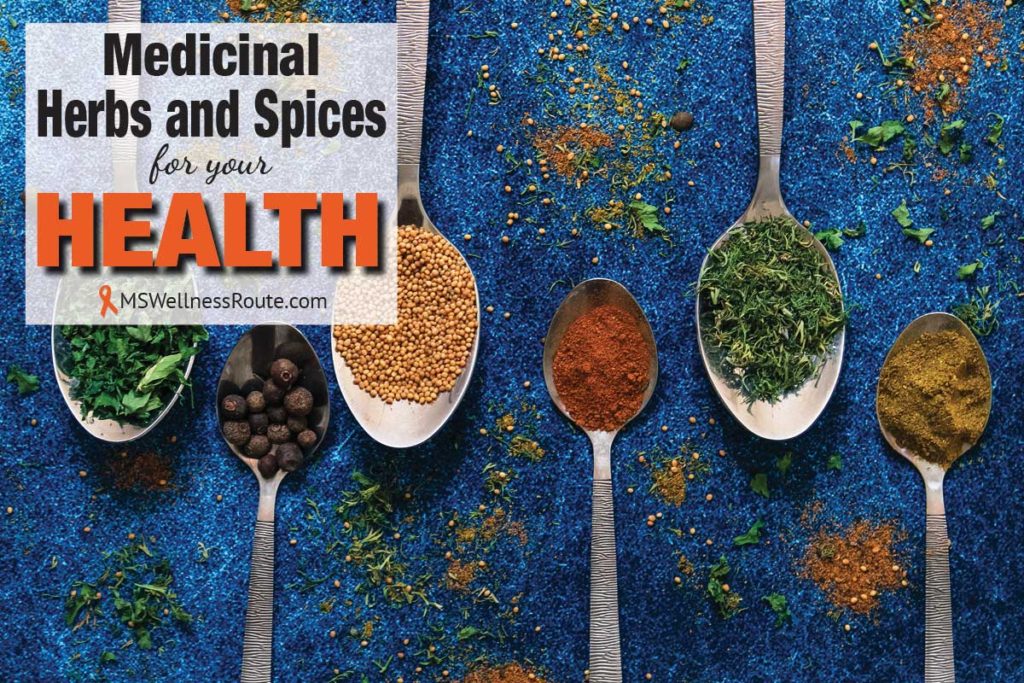
People have used herbs and spices throughout history, for both culinary and medicinal purposes. Some herbs have chemical compounds that help them fight bacteria, fungi, and viruses. And some have chemicals to ward off insects and animals from consuming them.
Salt and pepper are the most widely used seasonings but there are plenty of herbs to choose from instead. When buying salt choose sea salt over refined salt for its many health benefits. Himalayan pink sea salt has added benefits. It contains calcium, chloride, iron, magnesium, phosphorus, and potassium.
Freshly ground black pepper tastes much better than already ground. It also has health benefits such as antioxidant and antibacterial properties. it also helps with digestion by stimulating the taste buds to increase stomach acids. Herbs and spices are not just for flavoring or garnishing foods, they are also used for healing. Many of these are probably already in your kitchen.
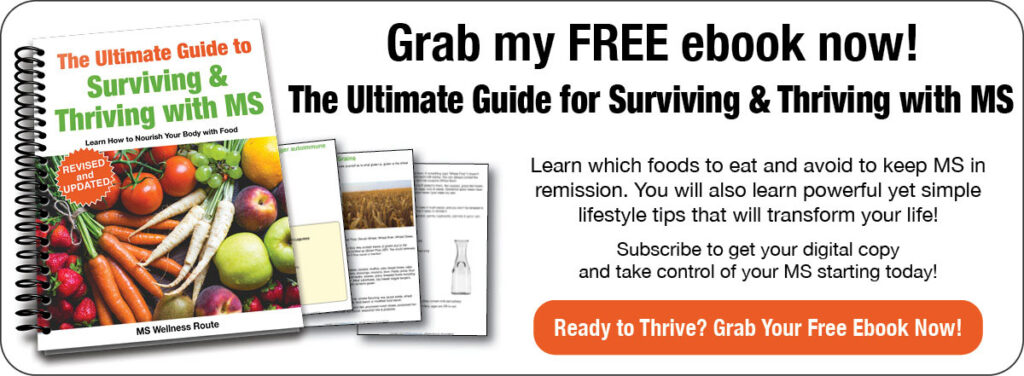
Common medicinal herbs and spices plus their benefits:
Basil
Basil is a powerful antioxidant, anti-inflammatory, and antibacterial. It’s full of vitamins and minerals. It lowers bacteria, blood sugar, inflammation, and oxidative stress, and supports liver health. Basil is a popular herb used in many Italian dishes or any dish. Add it to meat, dressings, soups, or vegetables. It even tastes good mixed with berries like strawberries.
Cilantro
Cilantro is high in vitamins A, C, E, and K, as well as folate, manganese, and potassium. It rids the body of heavy metals like arsenic, aluminum, and mercury. Cilantro also protects against heart disease, infections, inflammation, and type 2 diabetes. It also has anti-cancer effects, antifungal properties, and antioxidants. Candida albicans is a yeast overgrowth (fungi) that is common in people with MS.
Cilantro is one of those herbs that you either love or hate it. 23andMe found two genetic markers associated with a strong dislike of cilantro. But with all the health benefits, you may want to add it to your diet. I used to not like cilantro but after a while, it didn’t bother me. Cilantro tastes good in Mexican and Thai recipes. You can also add it to cauliflower rice, fish, salads, salsas, soups, and vegetable dips.
Cinnamon
Cinnamon is a common spice used in foods or sprinkled on top. It is also used in traditional medicine. It is high in antioxidants and reduces inflammation. Studies found it may have benefits for people with neurodegenerative diseases.
Multiple sclerosis (MS), Alzheimer’s, and Parkinson’s are neurodegenerative diseases.
Cinnamon can mimic the effects of insulin by lowering blood sugar levels. This helps because bacterial and fungal infections feed on sugar – yes, even blood sugar. Cassia cinnamon is the more common variety. Some people believe Ceylon cinnamon is the “true” cinnamon. Add cinnamon to any dishes or smoothies.
Cloves
Clove is an aromatic spice, it’s used in many spice mixes and pumpkin pie. Cloves include antioxidants to help your body fight free radicals that damage cells. Plus, they include many important nutrients such as fiber, vitamins, and minerals.
The Health benefits of cloves include antioxidants and improved liver function. It also kills bacteria, promotes bone health, reduces inflammation, and regulates blood sugar. Cloves go well with cinnamon and nutmeg in sweet dishes like pumpkin pie. It also makes a delicious pumpkin pie smoothie. It also goes well with cauliflower rice, meat dishes, sauces, and soups.
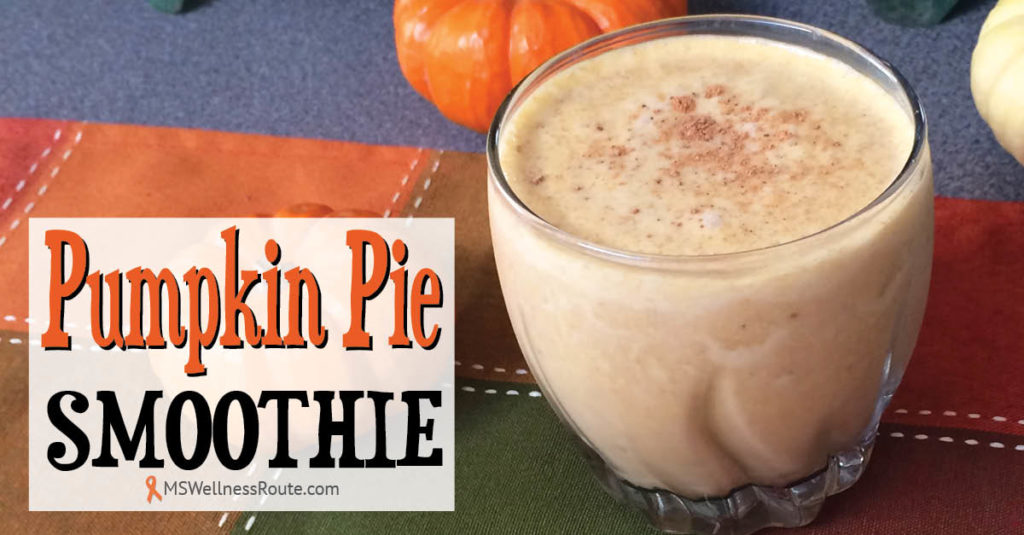
Dill
Dill includes vitamins A and C is rich in antioxidants and includes flavonoids. It helps with digestive issues, blood sugar, bone health, and heart disease. It also has antibacterial properties, improves depression, includes bone health, and fights insomnia. These are all important when you’re living with MS. You can eat dill fresh or dried. It goes well with baked sweet potatoes, fish, lamb, marinades, salads, and dressings.
Garlic
Garlic has many health benefits. It helps fight inflammation and boosts your immune system. The benefits of garlic help improve skin health, blood pressure, cholesterol improved memory. It also fights bacteria, and fungus protects heart health, and reduces colds and flu. It may also stop bone loss which is common in people with MS.
Lemon Balm
Lemon balm is part of the mint family and has many medicinal uses. It helps with anxiety, digestive symptoms, and heart health, and lowers blood sugar. It even improves cognitive function which is a common symptom of MS. Lemon balm has a slight lemon flavor. It tastes good added to Asian-style, chicken, or fish dishes. Although it’s not as common it is worth trying.
Oregano
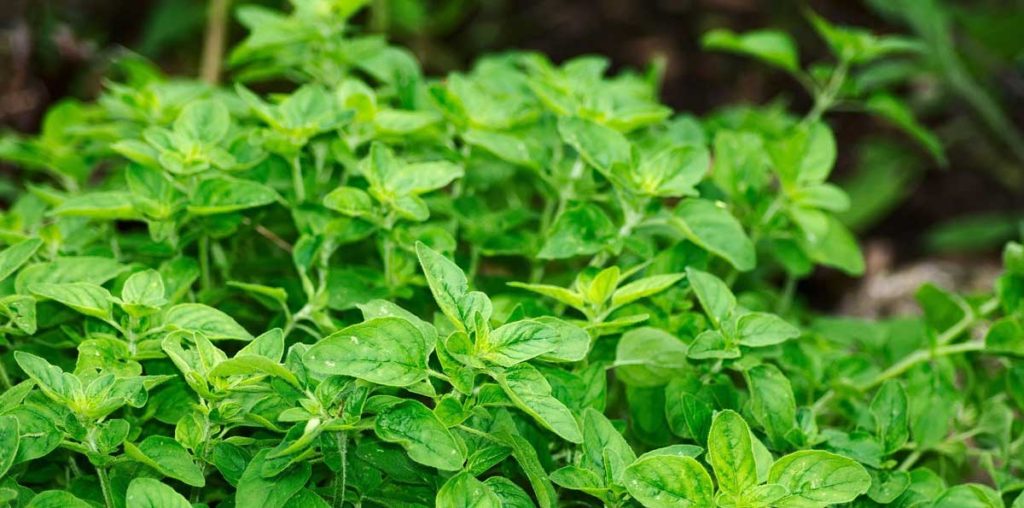
Oregano is an herb from the mint family. It’s used in food and for medicinal purposes. It is a popular herb in the Mediterranean diet. There are different types of oregano but they all have powerful health benefits. Oregano is antibacterial, anti-inflammatory, and anti-fungal. Oregano is not only for Italian or Mediterranean dishes. Add it to salads, salad dressings, and marinates. Sprinkle it on chicken and meat dishes.
Parsley
Although restaurants use parsley as a garnish, when eaten it has many health benefits. Parsley is full of vitamin K which supports bone health. People with MS are at a higher risk for osteoporosis. Parsley includes vitamins A and C, folate, and potassium. It also provides antioxidants, eye health, and reduces blood pressure. You can also use it as a breath freshener. Fresh parsley is easy to add to your diet. Eat it alone or add it to casseroles, meat dishes, salad dressings, salmon, and soups. It’s easy to add fresh or dried parsley to any of your meals.
Rosemary
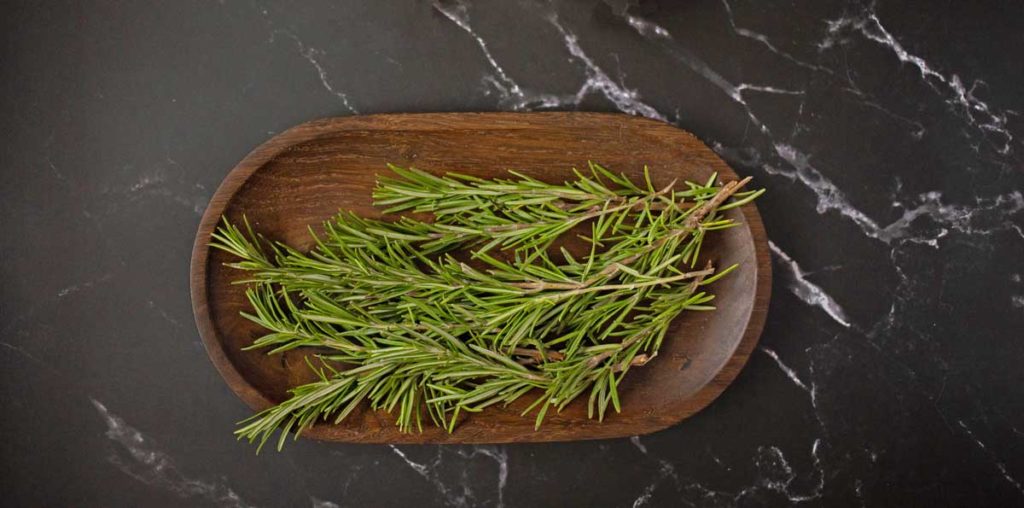
Rosemary is a member of the mint family. Kitchens have used this herb for centuries. It is high in antioxidants and has pain-relieving properties. The benefits of rosemary include antihistamine, boosting immunity, and reducing stress. Plus, its digestive aid improves memory, and immune support increases blood circulation, and relieves pain. Rosemary goes well with fish, meats, salads, soups, stews, and vegetables.
Sage
Sage comes from the Latin word Salvere, which means “to save.” It’s known for its healing properties. It includes antioxidants, reduces blood sugar and cholesterol levels, and supports brain health. Add sage to vegetables or sprinkle as a garnish. It goes well with roasted vegetables, as a rub for meats, or in mashed sweet potatoes.
Thyme
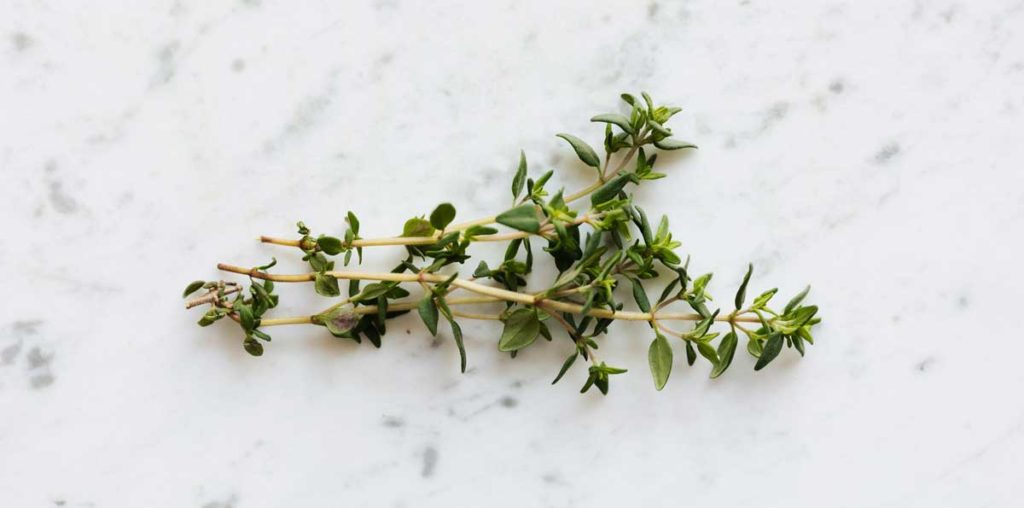
Thyme is also a member of the mint family. It has compounds that have strong antimicrobial properties that destroy harmful organisms. The benefits of thyme include antioxidants, boosting immunity, and improved mood. It helps fight parasites and yeast overgrowth and reduces high blood pressure. Thyme goes well with meats, salads, seafood, soups, stews, and vegetables.
Turmeric
Turmeric is a spice that gives curry its yellow color. Its usage goes back thousands of years as a spice and for medicinal purposes. The active ingredient in turmeric is curcumin which is a powerful anti-inflammatory.
Curcumin is an antioxidant, that boosts brain health, improves heart health, and lowers inflammation. It also crosses the blood-brain barrier. Which is crucial to the central nervous system.
MS is the effect of the breakdown of the blood-brain barrier.
Use turmeric in cauliflower rice, meat recipes, smoothies, soups, and vegetables.
Nightshade Herbs and Spices
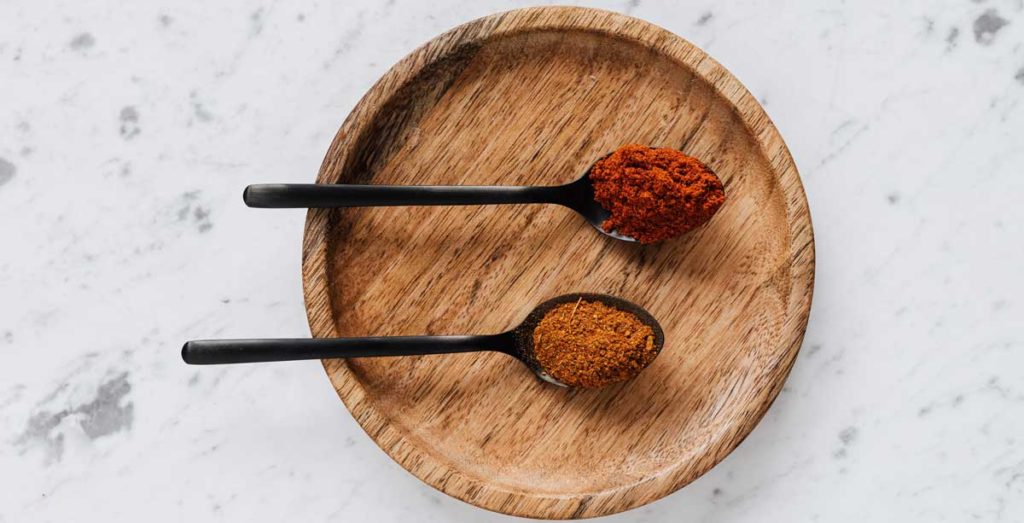
Some people with MS have a sensitivity to nightshades such as eggplant, peppers, tomatoes, and white potatoes (not sweet potatoes). Some herbs and spices are also nightshades. Nightshades have compounds to ward off predators from eating them.
They also have lectins and glycoalkaloids, studies show these compounds contribute to a leaky gut. Which is when the gut lining separates allowing toxins to pass through into the bloodstream. Having MS means you have a leaky gut so you should avoid all nightshades including herbs and spices.
Nightshade herbs and spices:
- Cayenne
- Chili powder
- Crushed red peppers
- Cumin
- Curry powder
- Paprika
Watch out for premixed spices that may contain nightshades.
Medicinal Herbs and Spices for Your Health
There are many more amazing herbs and spices you should try. The herbs and spices listed above are a must-have when you are trying to heal your body. Unfortunately, herbs are expensive to buy in grocery stores but they are very easy to grow.
You don’t need a big garden to grow herbs, even a small patio or window sill will work. Give it a try, growing your own herbs is rewarding and delicious.

Free Wellness Library!
Subscribe for free and I’ll send you the password to my secret library filled with many printables for your wellness journey.
Want to remember this health tip? Pin it to your favorite Pinterest board!
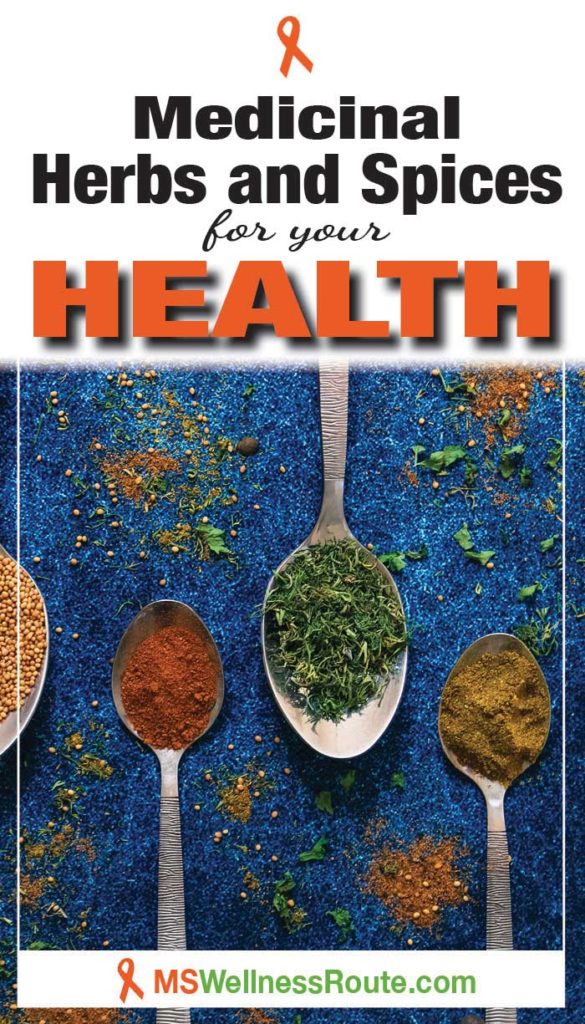
Photos by Hans Linde from Pixabay and Anastasia Belousova, Karolina Grabowska, Karolina Grabowska, and Monstera from Pexels.
Medicinal Herbs and Spices for Your Health





